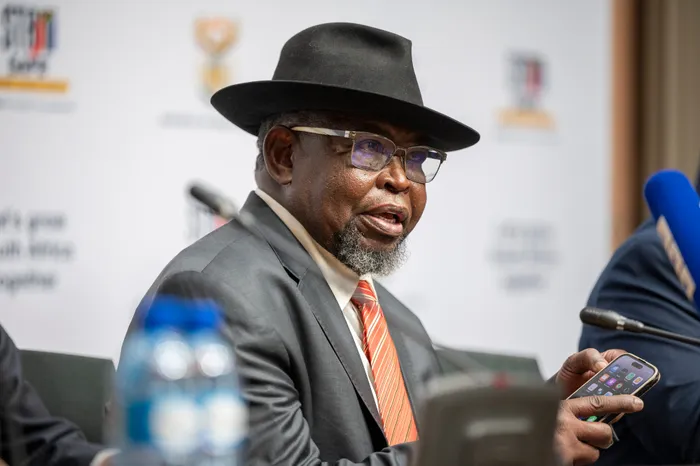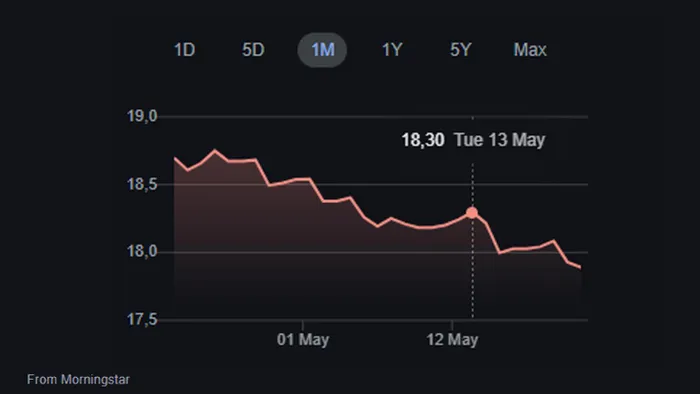National Budget 2025: What to expect from Enoch Godongwana's address

Finance Minister Enoch Godongwana is set to address Parliament, revealing critical strategies to address a R75 billion revenue shortfall. With VAT hikes off the table, economists weigh in on what to expect from this pivotal National Budget 2025
Image: Armand Hough / Independent Newspapers
Ahead of Finance Minister Enoch Godongwana’s third address to approximately 400 Members of Parliament at 2pm on Wednesday, economists anticipate he will make a series of significant announcements.
Among these is just how Godongwana will fill a R75 billion hole in revenue now that a VAT hike is no longer an option. The previous two budget proposals failed to gain approval, first after a proposed VAT increase from 15% to 17%, and then the Minister backtracked on a suggested 0.5 percentage point hike.
The failure of the Government of National Unity (GNU) to come to an agreement on the National Budget unsettled markets, while the DA and EFF took National Treasury to court to stop a VAT hike. Cabinet has since approved the framework.
As confidence that the latest iteration of the fiscal framework will be passed the rand has, among other reasons, broken through the key barrier of R18 and, early this morning, was trading at R17.89.
Bianca Botes, director at Citadel Global said “volatility is likely to be heightened in the local market today, and caution is advised. The rand capitalised on a soft dollar, but today’s events will influence its next move”.
Investec chief economist, Annabel Bishop, said that markets now are showing improved sentiment towards South Africa as the GNU didn’t fall apart and the National Budget is reported to be widely supported in the multi-party government this time around.
Johann Els, Old Mutual chief economist, told IOL that Cabinet agreed on the National Budget last week also “suggests that it's going to be a relatively good budget in that sense”.
Both Bishop and Els are expecting a hike in the fuel levy. “We're heading towards a petrol price cut in the beginning of June, so some of that might be taken away by a fuel levy increase,” said Els.

The Rand's reaction ahead of Finance Minister Enoch Godongwana's third presentation of the Budget speech.
Image: Morningstar
Bishop has also suggested that so-called sin taxes may go up in price as they may attract higher duties.
Casey Sprake, economist at, Anchor Capital told IOL that the central challenge of the third iteration of Budget 2025 lies in how effectively government responds to several mounting fiscal pressures: the reversal of the planned VAT increases, a weaker economic growth outlook, and the withdrawal of aid funding from the United States.
President Cyril Ramaphosa is current in the States to negotiate a trade deal with President Donald Trump after his shock announcement that he would slap a 30% tariff on all goods entering that country. The two are reportedly set to meet today, and this will be the first National Budget that Ramaphosa has not attended since initially being voted in six years ago.
Sprake said, “amid these shifting dynamics, there is substantial uncertainty around the detailed policy choices. Nonetheless, the underlying expectation is that government will stay the course on its commitment to stabilising the debt-to-gross domestic product (GDP) ratio in the 2025/26 fiscal year, while maintaining its current bond issuance targets”.
Els told IOL that “I do not want, and I'm pretty sure markets and investors do not want, increased borrowing or increase in the budget deficit ratio or increase in the debt to GDP ratio. I suspect there might be marginal increases, that's okay, but no big increases.”
To compensate for negative fiscal impacts, government is likely to dial back some of the new spending introduced in the previous two National Budget 2025 updates, said Sprake. “In particular, increased allocations for frontline services are expected to be trimmed. However, National Treasury is likely to protect infrastructure spending, positioning it as central to efforts aimed at boosting long-term economic growth.”
Els has also indicated that frontline costs such as extra nurses and teachers may be cut. “Expenditure needs to be cut,” he said.
Sipho Mhaga, customs and excise specialist at SNG Grant Thornton and Khanyisa Cingo-Ngandu, head of tax at SNG Grant Thornton, said in a combined comment that “we can expect the government to continue prioritising infrastructure, logistics and economic development as these areas have consistently featured on the national agenda”.
Mhaga and Cingo-Ngandu said: “True growth depends on alignment between fiscal intent, practical delivery and long-term strategy. if South Africa is ever to achieve its full economic potential, infrastructure, logistics and human capital development must move from being budget line items to genuine national priorities.”
Sprake called for stronger oversight of extra-budgetary funds and public entities operating outside the direct control of Parliament and National Treasury. These include the Unemployment Insurance Fund, Sector Education and Training Authorities, Sanral, Prasa, and others. “Alarmingly, spending by these entities is projected to grow by 24.2% in 2025/26, far exceeding the main budget’s 3.1% increase,” she said.
Reaching fiscal sustainability will require difficult but necessary decisions, especially around public sector remuneration, said Sprake. “Whether these reforms are implemented immediately or postponed, South Africa has reached a fiscal inflection point. The era of easy choices is over, what remains are trade-offs among competing economic and political costs,” she added.
Adriaan Grové, founder and MD at MyProperty, said “ultimately, the Budget Speech is not just about numbers, it’s about whether South Africa can chart a stable, investor-friendly path that builds confidence across sectors”.
IOL
Related Topics: